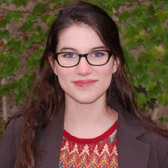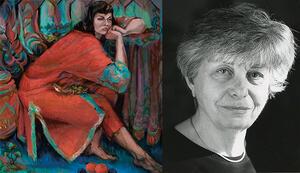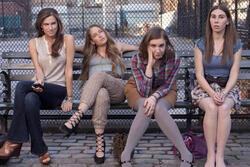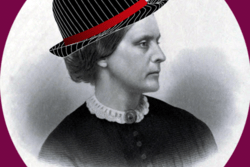Being Female, Feminist, and Very Political at 90
Part 5 of the series Reading Our Rights
Marianne Lieberman is a Holocaust survivor and artist credited with incorporating the first NARAL affiliate in Raleigh in 1977 after undergoing her own illegal abortion in 1949. Raised in a secular family in Vienna, Marianne’s first experience with reproductive justice came from her mother’s insistence on having a home birth in 1927. Marianne recalls the pride her mother took in that decision:
"My father was a physician and she must have insisted that she [was] going to have her midwife at the house, and that must have been a shock to my father. The reason I know that is because she actually took me up the street to introduce me to the midwife who helped give birth to me. She was so proud of that, you know? She wanted me to know that she defied my father. I mean that was part of the story."
That story, in which Marianne’s mother exemplified resistance in the face of reproductive control, would serve as a model for the rest of her work, which continues today in conservative North Carolina.
Marianne’s growth from a secular Austrian child to a feminist Jewish-American artist was a result not so much of happenstance or personal inclination as of targeted persecution from governing bodies that have tried to erase her autonomy at different points in time. Now at 90, Marianne continues the fight for reproductive justice and other feminist ideals.
Marianne didn’t know her paternal grandparents were Jewish until the Nuremberg Laws went into effect. At age 11, her family’s secular identity was forcibly erased by the Nazis, replaced with a new Jewish label that resulted in her father being forbidden from practicing medicine and his escape from Austria. “Whatever I believed and thought I was, with Hitler’s onslaught, I no longer was,” said Marianne. “My identity was changed and lost.” For the next ten years, Marianne’s life centered around surviving a Nazi-occupied Austria, by sheltering from twice daily bombings during the war, staying with distant relatives, and working for a company which secretly employed people with one Jewish parent. “I never knew who would denounce us. We relied a great deal on the non-Jewish community that helped us survive,” said Marianne, who credits her survival to her own presence of mind and her mother’s resilience.
Then, in 1947, Marianne and her mother immigrated to the United States to join her father, who had been living in New York for six years. She arrived with a burgeoning artistic talent and a shattered sense of personal identity. In 1949, Marianne found herself pregnant after being raped in New York. “I had an illegal abortion, which was horrendous because I was not assured of its success. I was thinking of committing suicide,” said Marianne. This experience would shape how she thought about abortion and reproductive justice for the rest of her life. While Marianne remained defiantly outspoken about this experience throughout her life, she never told her parents or even considered telling them.
When Marianne met her husband, Jerry, a refugee from Munich, in late 1949, she was forthcoming about her abortion experience. Jerry was shocked but supportive. She and Jerry left New York and its traumas behind before settling in North Carolina. Describing their union, Marianne said, “We immediately took to each other, I mean really felt like we absolutely belonged together.” Marianne and Jerry cultivated a powerful partnership as they dove into liberal activism in their new southern home.
Soon after abortion was legalized nationally in 1973, North Carolina Senator Jesse Helms began work to chip away at Roe v. Wade. In response, Marianne volunteered with NARAL to build and incorporate the North Carolina chapter. She was proud of the work that went into developing the chapter. “People really were afraid to use the word ‘abortion,’” said Marianne, “so when I was soliciting funds for abortion rights, I made it a point of making people say the word.” By the early 1980s, the chapter established a Board of Directors and enough membership to secure grant money and hire a coordinator.
At this point, Marianne had been remarkably successful on a volunteer basis, but sought to solidify her identity outside of her activism and experiences. In 1953, her husband had encouraged her to get involved with their Reform congregation. Marianne volunteered for the synagogue yearbook and designed an art program for the religious school, but she still felt isolated in the North Carolina Reform community and returned seriously to her art. Marianne’s art, which she describes as “female, feminist, political, and very personal,” has been displayed at the Mint Museum, Queens College in Charlotte, the University of North Carolina-Charlotte, and Winston-Salem State University. Describing an etching she did of her abortion, Marianne continued, “Art gave me my identity. That’s how I survived my experiences that were all so negative, and my art became the most important thing in my life.”
It’s no coincidence Marianne’s work is so deeply political. When asked about the contemporary political moment, she responded: Women need to be political; even if they are homemakers and are isolated or want to be isolated, it’s not acceptable. People need to support feminism and understand that without feminism we are going to go backwards. So they need to join groups, and they need to be active in politics, and work for women’s rights.
In North Carolina now, the fight for reproductive justice continues. With the state legislature moving more money away from abortion procedure coverage and towards anti-abortion advocacy groups, pro-choice activism remains vital. While the work Marianne began is far from over, the work she did to ensure that no human has to go through what she did after escaping Europe created an infrastructure on which young women have a political obligation to build. In her book, Aftershocks, Marianne expands on the stories told here, describing Jewish and Christian family background, the mysteries she has since uncovered about her parents, and her early recognition that life and abortion are political. It is available on Amazon, Barnes & Noble, and IndieBound.








Like my mother before me was of her mother, I am so proud to be the daughter of Marianne Lieberman. She is an amazing artist whose work needs to find the audience and recognition it deserves. Marianne is a strong, brilliant scholar, a deep thinker, a loving and supportive mother, and an ethical decision maker of top order. Her life was thwarted into a sruggle for survival at a young age and she brings that resilience into her life and art to this day. She is an inspiration to me on so many levels and I hope you will read her book and buy her art so that it lives on in this world. While I am undoubtedly biased, many others have found that you do not need to be related to her to see the power in her work and words; and to learn from her about the importance of living one's truth. The world today is a stark reminder that we can never stop standing up for our rights as women, and for the freedom to practice the religion of one's choice and/or heritage, or to not practice any religion. Freedom to be in charge of our own bodies/minds/spirits within our homes and in the world is of utmost importance. If my mom ever tires of carrying the torch, and needs to pass it along, I am in lockstep with her, handoutstretched, ready to take it.
Miriam Lieberman
In reply to Like my mother before me was by Miriam Lieberman
I second everything you've said here, Miriam, and can add that my work with Marianne Lieberman, as her editor/publisher of AFTERSHOCKS and an earlier book, has been a highlight of my career. Marianne's words and art are powerful distillations of truth, and she herself is an inspiring example of resilience that also manages to hold onto sensitivity and vulnerability in the world and toward people. I'm not sure one human being can do any better with life.